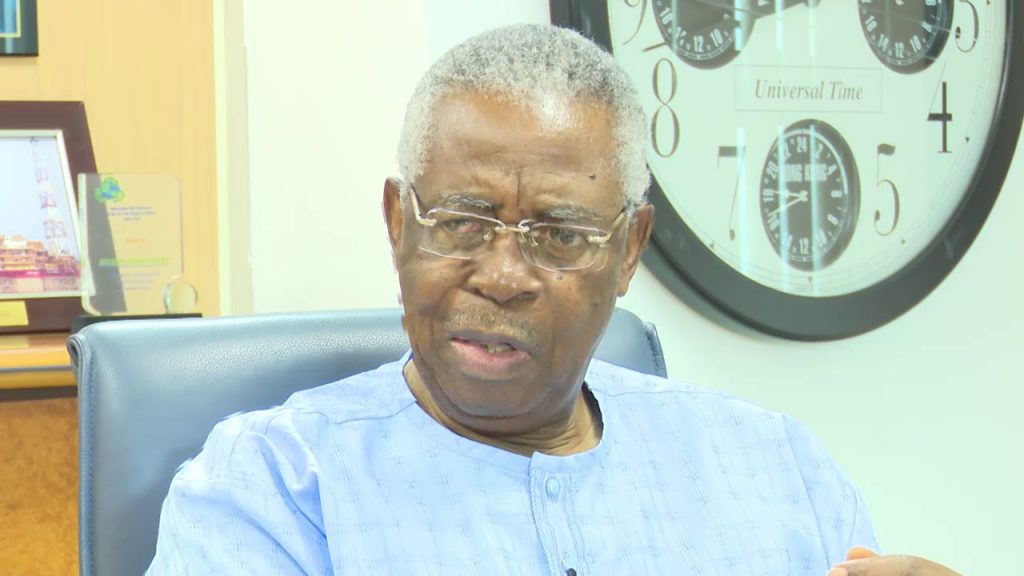Deadly Oil Spillage: Aiteo’s Two Week Delay And Need For Sanctions

For more than two weeks, the people of Nembe, a coastal town in oil-rich Bayelsa state, have been dealing with yet another tragedy, this time threatening the livelihood of over 130,000 people.
Oil spills had wreaked havoc on their environment, marine life, and air and water pollution in the past, but this time was particularly bad, with far-reaching consequences.
On November 5th, a wellhead in the Santa Barbara South field blew, spewing oil into aquatic regions for twenty days.
Although Aiteo Eastern Exploration and Production Company (AEEPCO) and Nigerian National Petroleum Corporation (NNPC) jointly hold OML 29, AEEPCO is solely responsible for the well’s activities and management.
The Nembe tragedy was made worse by AEEPCO’s management’s 20-day delay in taking preventative actions, which they were supposed to do. Instead, the firm blamed the incident on saboteur activity, and said it was mobilizing technical skills both locally and abroad to stop the spill.
The Ijaw National Congress (INC) chastised the corporation for its weak response to the November 5 leak to emphasize the oil well operator’s casual attitude. The organization claimed that Aiteo made a mistake by linking the wellhead leak within its oil bloc in the Nembe creeks to the incident without conducting a Joint Investigation Visit (JIV).
The socio-cultural group also criticized Aiteo’s stance on sabotage, claiming that it could jeopardize the outcome of the JIV, which is still underway due to oil leakage from the site.
“First and foremost, we would want to express our disappointment with Aiteo’s assertion that the oil spill was caused by sabotage. “The INC believes this stance to be biased and preemptive, and it is unacceptable,” stated a representative for the organization.
Despite the fact that the federal government ordered Aiteo’s operations in Santa Barbara, Nembe, to be shut down immediately, the corporation should be sanctioned for such an environmental disaster.
The impacts of an oil spill on the ecosystem and habitats can be disastrous, as they can kill plants and animals, disrupt salinity, pollute air and water, and so on. For the people who are mostly fishers, traders, and farmers, this causes discomfort.
Aside from the environmental consequences of oil spills, the country has continued to lose money on a bigger scale.
According to the Nigeria Natural Resources Charter, Nigeria lost $4.75 trillion between 2015 and 2018. Nigeria’s Minister of Environment, Mohammad Abubakar, revealed in July that the country had 4,919 oil leaks between 2015 and March 2021, and had lost 4.5 trillion barrels of oil to theft in that time.
According to several studies, Nigeria is the world’s most notorious country for oil leaks, losing around 400,000 barrels every day.
Also, according to Andrew Oru, Director of Asset Production at Aiteo, the damaged well contains around 85% gas and 15% petroleum. This is a massive loss at a time when the cost of cooking gas has soared beyond the reach of the common man.
Sharon Ikeazor, Minister of State for Environment, has revealed that the federal government is exploring tougher penalties for corporations responsible for oil spills in the Niger Delta. She also stated that her ministry was collaborating with other government entities to accomplish this.
Ikeazor stated that the Ministry of Environment is trying to alter the statute that established the National Oil Spillage Detection and Response Agency in order to increase its capabilities and give it “the teeth to bite.”
However, rather than engaging in rhetoric and procedural consultations, the government must act quickly and make firms pay a high price for their incompetence.




